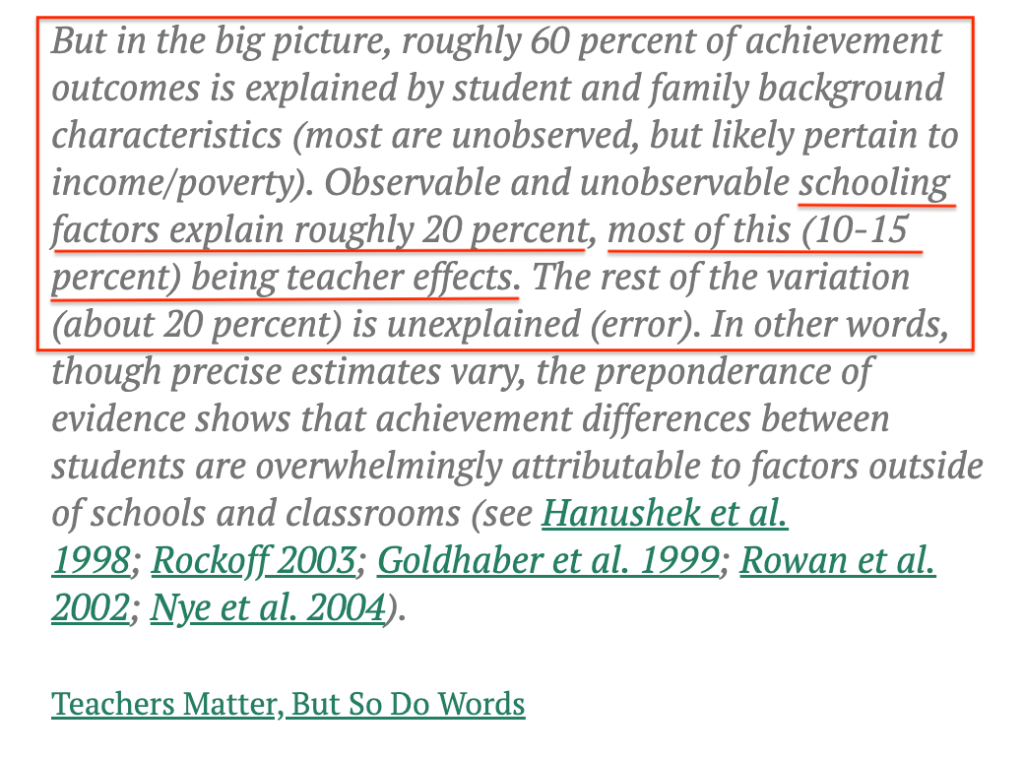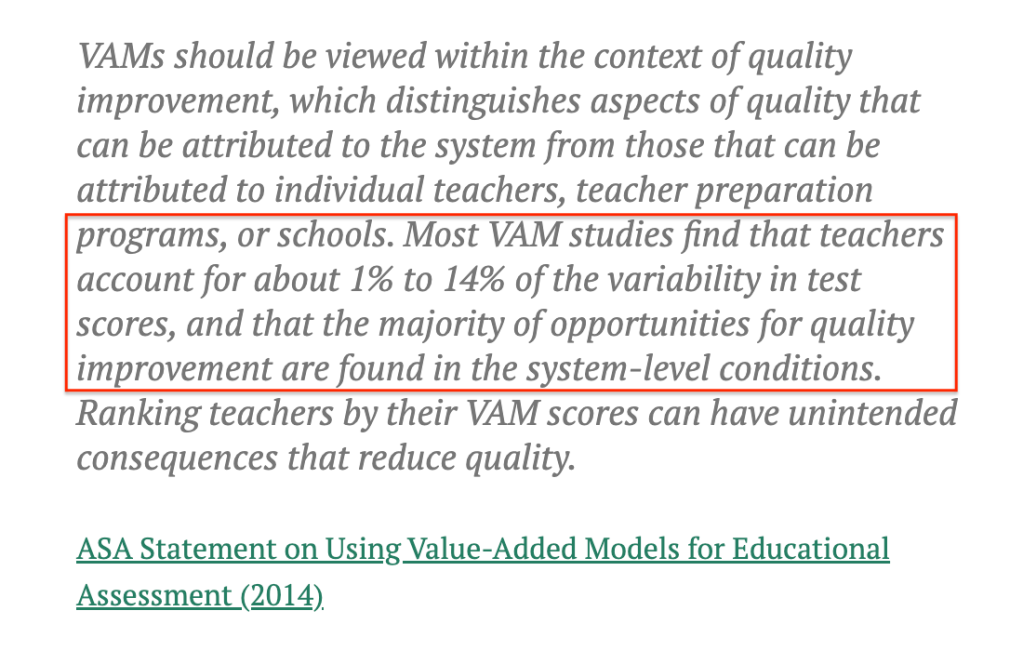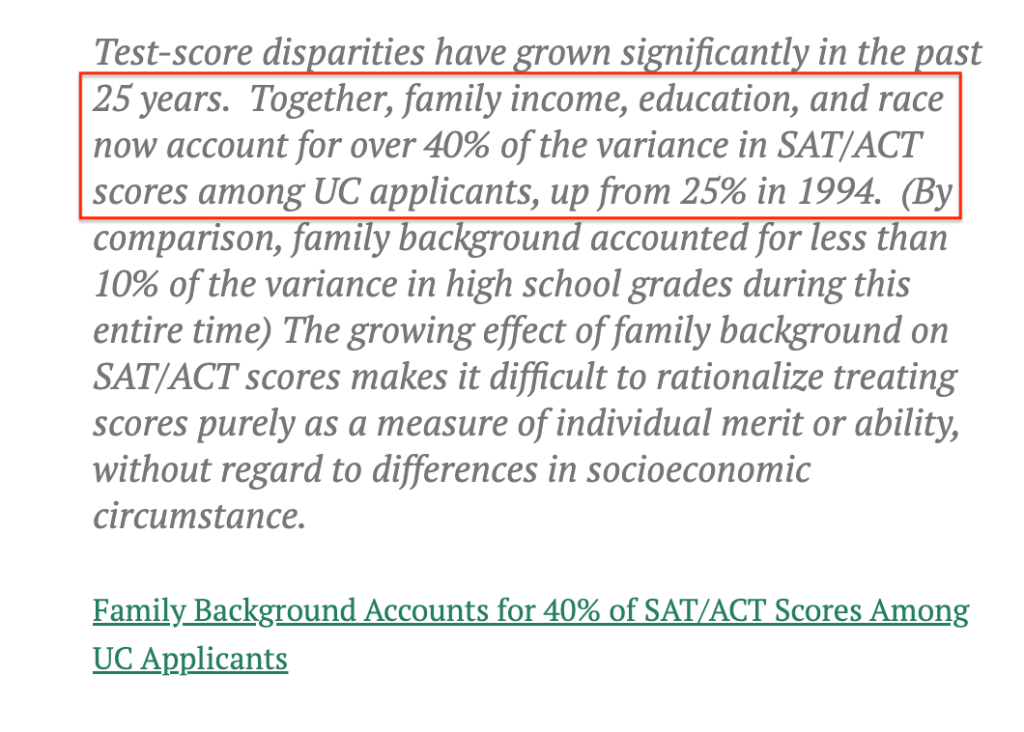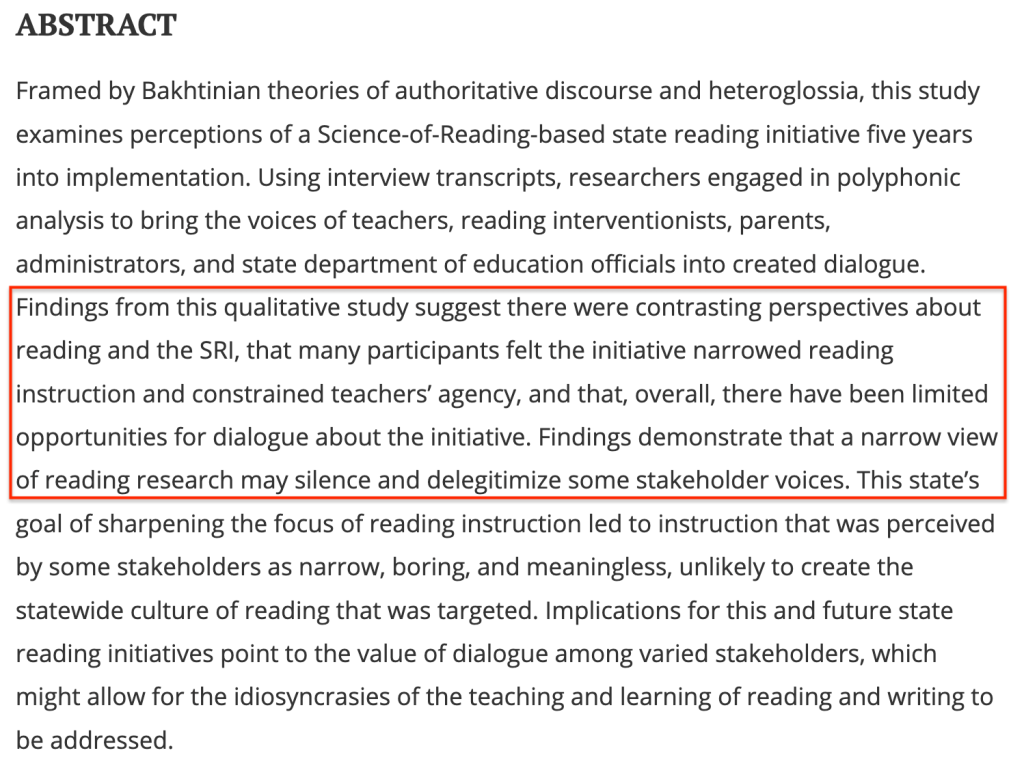The list is mind-numbingly long—education lies that won’t die.
I have detailed often the standard manufactured crisis/miracle rhetoric surrounding discussions of education in media, among the public, and by politicians.
And currently, the manufactured reading crisis is grounded in the Big Lie about NAEP and reading proficiency.
Many education lies that won’t die are ideological beliefs masquerading as evidence-based claims; two of the most persistent of those involve assertions about teacher value and merit pay schemes.
Of course, teacher value is incredibly important to student learning; however, this argument is misleading at best, at worst a lie: “Research has shown that the number one factor influencing individual student achievement is the quality of the teacher in the classroom.”
It is an incredibly compelling misrepresentation of the data available, primarily because it appears to support the value of teachers.
Yet, the evidence over many years shows that measurable student achievement is mostly driven by out-of-school factors (OOS) with in-school factors and teacher quality as a subset of that, both significantly overshadowed by those OOS factors:



The paradox is that teacher value is very difficult to measure through student achievement tests. Further, claims about teacher value that misrepresent that value force teachers and students into nearly impossible conditions to be successful.
Locally, a district is revisiting value-added efforts to attract and retain teachers in high-poverty, majority-minority school, paired with merit pay schemes (that have been tried multiple times in South Carolina unsuccessfully).
Value-added methods of teacher evaluation and merit pay are ideological commitments, and both are strongly refuted by a large body of evidence.
Simultaneously with these failed schemes, education is increasingly hostile to teachers—parent organizations framing teachers as groomers and indoctrinators along with states and districts trending toward curriculum bans and scripted curriculum that de-professionalize those teachers:

If we genuinely value teachers—and having been in this profession 40 years, I suspect that on balance we do not—we would address teaching and learning conditions (class size, teacher autonomy, etc.) within a larger effort to address social inequity in children’s communities and homes.
Ideology is not evidence, and education, teachers, and students deserve much better than political leaders and administrators using our schools as experiments of that ideology—especially when we have ample evidence that ideology is flawed.
Recommended
VAM: Why Is This Zombie Policy Still Around? Peter Greene
UPDATE
Maroun, Jamil, and Christopher H. Tienken. 2024. “The Pernicious Predictability of State-Mandated Tests of Academic Achievement in the United States” Education Sciences 14, no. 2: 129. https://doi.org/10.3390/educsci14020129
Abstract
The purpose of this study was to determine the predictiveness of community and family demographic variables related to the development of student academic background knowledge on the percentage of students who pass a state-mandated, commercially prepared, standardized Algebra 1 test in the state of New Jersey, USA. This explanatory, cross-sectional study utilized quantitative methods through hierarchical regression analysis. The results suggest that family demographic variables found in the United States Census data related to the development of student academic background knowledge predicted 75 percent of schools in which students achieved a passing score on a state standardized high school assessment of Algebra 1. We can conclude that construct-irrelevant variance, influenced in part by student background knowledge, can be used to predict standardized test results. The results call into question the use of standardized tests as tools for policy makers and educational leaders to accurately judge student learning or school quality.


